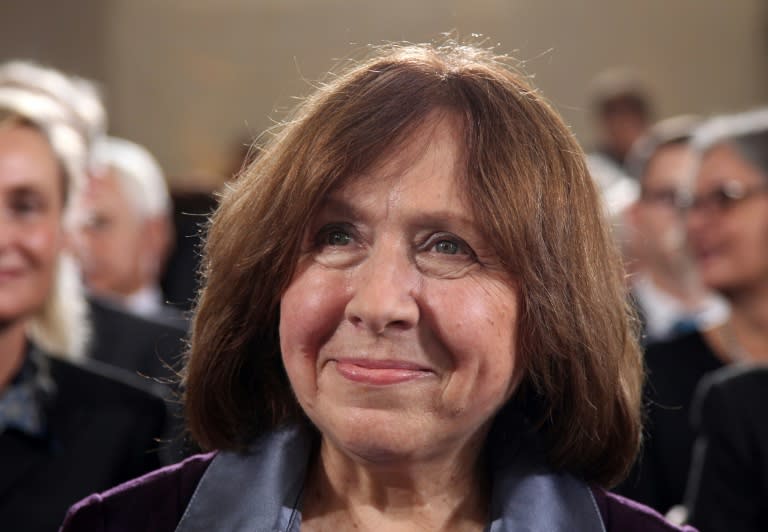The tough task of predicting a Nobel literature laureate
Predicting a Nobel literature prize winner can be harder than finding a needle in a haystack, with hundreds of possible candidates but few clues as to who the chosen one will be. Could Svetlana Alexievich of Belarus, Mircea Cartarescu of Romania or Joyce Carol Oates of the US -- to name but a few -- follow in the footsteps of last year's laureate Patrick Modiano? The answer will only be known on Thursday when the Swedish Academy reveals its choice at 1:00 pm (1100 GMT). For bookmakers, the lack of a clear frontrunner is good for business. "The Nobel Prize in Literature is a bit mysterious. Everyone wants the prestige of having guessed the right name," said Jonas Nilsson, a spokesman for Unibet Sweden. The real experts are usually reluctant to make a prediction. "What is for sure is that the Swedish Academy likes to surprise," Gustav Kallstrand, a curator at the Nobel Museum said. Asked about the winner, his only response was to laugh. "It is impossible to say who the winner will be this year. There are over a hundred possible authors, certainly even more," said Madelaine Levy, a literary critic at daily Svenska Dagbladet. The Academy, which never reveals the list of nominees, always sticks to the same timeline: In February, it lists all the nominations submitted by an exclusive group of "qualified people" that includes literature professors and former laureates. By May, the list has been whittled down to five names, whose works Academy members study in detail during the summer. The winner is then traditionally announced in mid-October. The opaque decision-making process leaves many basing their predictions on previous choices, where -- it is sometimes mentioned -- European names feature prominently. - Intense speculation - "Lately the Academy has tended to focus on authors exploring European identity after the Holocaust ... and also those who have delved into the impact of colonialism," said Bjorn Wiman, culture editor at daily Dagens Nyheter. Levy said she didn't see this year's prize going to a Swede after Tomas Transtromer won in 2011, nor to a French author given last year's win for Patrick Modiano. Another critic, Jens Liljestrand of the Expressen newspaper, said geography was not among the criteria considered by the Academy. "It's not like when you pick the next host city for the Olympics and you say: This time it's Africa's turn," he said. Still, many say now would be a good time to reward African literature by giving the prize to someone like Kenya's Ngugi wa Thiong'o, Somalia's Nuruddin Farah or Nigeria's Ben Okri. Others believe it's high time for the award to go to an American author, which hasn't happened since Toni Morrison won in 1993. "The Academy has shown an aversion towards American literature. ... I wouldn't protest if (Philip) Roth or Oates were given the prize," Wiman said. In addition to geographical considerations, it has also been noted that the Academy, based in feminist Sweden, has only handed the award to women 13 out of 111 times since 1901. "For a long time it helped to be a male, preferably older. The Academy didn't think about this being problematic. The gender inequality was obvious," Levy said. "Over the past ten years the statistics, which are still not great, show a significant improvement ... which shows that they are now aware" of the problem, and that the jury "strives to make fairer choices," she added. Echoing those comments, Liljestrand said that "lately there has been a woman virtually every three years. They are more attentive." Among punters, many are putting their money on Svetlana Alexievich, especially since "her work is on the border between documentary and novel, a genre that hasn't been rewarded," Wiman said. Another woman whose name has appeared recently is American science fiction writer Ursula Le Guin. But that would be a surprise choice from the Academy, as the genre has traditionally been shunned by the literary elite. "It would be exciting, but not really credible," said Liljestrand.





